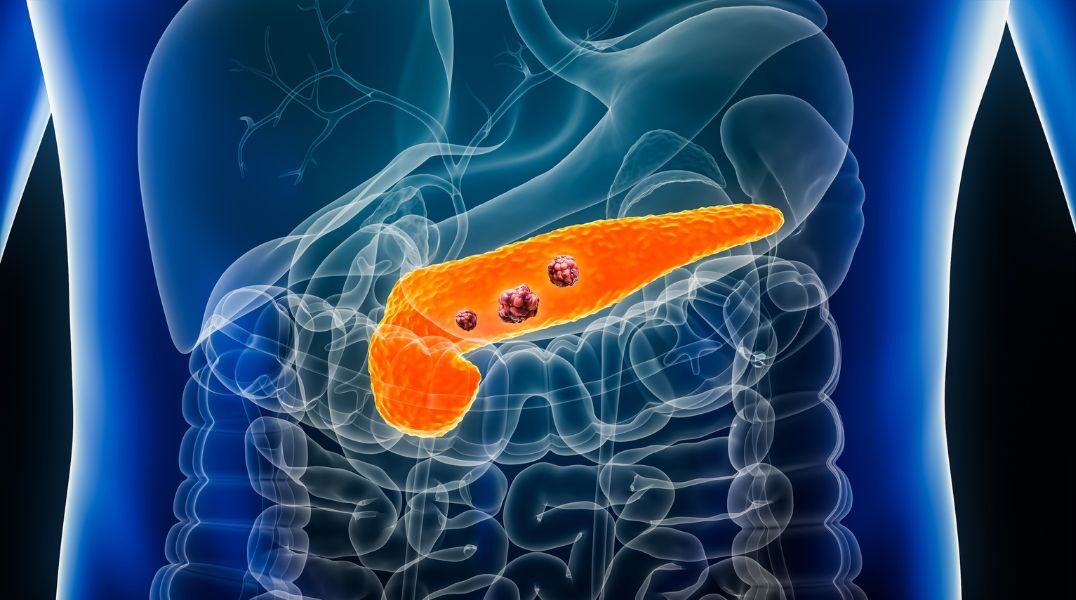BLOG
Pancreatic Cancer: Causes, Symptoms & Treatment

Pancreatic cancer remains one of the most challenging diseases to treat, with a survival rate that has not significantly improved over the decades. This blog post aims to delve into the causes, symptoms, and current treatments of pancreatic cancer, with a focus on the best medicine and strategies currently available.
What is Pancreatic Cancer?
Pancreatic cancer begins in the tissues of the pancreas, an essential organ lying behind the lower part of the stomach. The pancreas plays a crucial role in digestion by producing enzymes that help break down sugars, fats, and starches. It also produces hormones that help manage blood sugar levels.
Causes of Pancreatic Cancer
The exact causes of pancreatic cancer are not entirely understood, but several risk factors have been identified:
- Genetics: A family history of pancreatic cancer increases the risk. Certain genetic disorders like hereditary pancreatitis, Peutz-Jeghers syndrome, and Lynch syndrome are linked to a higher risk.
- Smoking: Tobacco use is one of the most significant risk factors, doubling the risk of pancreatic cancer.
- Obesity: Overweight individuals have about a 20% greater risk of developing pancreatic cancer.
- Age: The majority of patients are diagnosed over the age of 65.
- Diabetes: Long-standing diabetes is associated with pancreatic cancer.
- Chronic Pancreatitis: A long-term inflammation of the pancreas.
- Diet: Diets high in red and processed meats may increase the risk, while fruits, vegetables, and whole grains might lower the risk.
Symptoms of Pancreatic Cancer
Symptoms often do not appear until the disease is advanced, and they may be vague. Some common symptoms include:
- Jaundice: Yellowing of the skin and eyes.
- Weight Loss: Unexplained weight loss is a typical symptom.
- Pain: Abdominal or back pain due to the tumor pressing on surrounding organs.
- Loss of Appetite
- Nausea
- Changes in Stool: Pale, greasy stools that may float in the toilet.
- Diabetes: New-onset diabetes in people over 50 can be a warning sign.
Diagnosing Pancreatic Cancer
Pancreatic cancer is typically diagnosed through a combination of imaging tests such as CT scans, MRI, and endoscopic ultrasounds, which help visualize the tumor. A biopsy is performed to confirm the diagnosis through tissue samples.
Treatment of Pancreatic Cancer
Surgery
Surgery is the only potentially curative treatment but is only viable when the cancer is localized. Types of surgeries include:
- Whipple Procedure (Pancreaticoduodenectomy): Removal of the head of the pancreas, the first part of the small intestine, the gallbladder, and the bile duct.
- Distal Pancreatectomy: Removal of the tail of the pancreas, and sometimes the spleen.
- Total Pancreatectomy: Removal of the entire pancreas, part of the stomach, part of the small intestine, the common bile duct, the gallbladder, spleen, and nearby lymph nodes.
Radiation Therapy
Radiation therapy uses high-energy rays to kill cancer cells. It is often used in conjunction with surgery to help reduce the risk of recurrence.
Chemotherapy
Chemotherapy involves using drugs to kill cancer cells, usually given by mouth or injected into a vein. For pancreatic cancer, several chemotherapy drugs might be used:
- FOLFIRINOX: A combination of folinic acid, fluorouracil, irinotecan, and oxaliplatin.
- Gemcitabine: Often used for patients who might not be strong enough for FOLFIRINOX.
Targeted Therapy
Targeted therapy focuses on specific abnormalities within cancer cells. For example, erlotinib (Tarceva) targets the epidermal growth factor receptor (EGFR), which is involved in the growth and spread of cancer cells.
Immunotherapy
This is a relatively new field in pancreatic cancer treatment and is mostly used in clinical trials. Immunotherapy aims to boost the body’s natural defenses to fight the cancer.
Best Medicine for Pancreatic Cancer
Currently, there is no "best" medicine for pancreatic cancer as treatment depends on the stage of the disease, the patient’s overall health, and specific characteristics of the cancer. However, combinations like FOLFIRINOX and the use of gemcitabine have shown promise in improving survival rates. Ongoing research in molecularly targeted therapies and immunotherapy might provide new avenues for treatment.
Conclusion
Pancreatic cancer is a complex and deadly disease with vague symptoms and challenging treatment options. Advances in understanding the molecular basis of the disease and the development of more effective treatment strategies offer hope. Continued research, coupled with awareness about the risk factors and early signs, could improve the prognosis for patients suffering from this formidable disease.
For those diagnosed with pancreatic cancer, an oncology team that includes surgeons, medical oncologists, radiation oncologists, dietitians, and supportive care providers is crucial. Each patient’s treatment plan is tailored specifically to their condition, focusing on improving quality of life and survival. Regular follow-ups and participation in clinical trials are also advisable to access the most advanced treatment options available.

